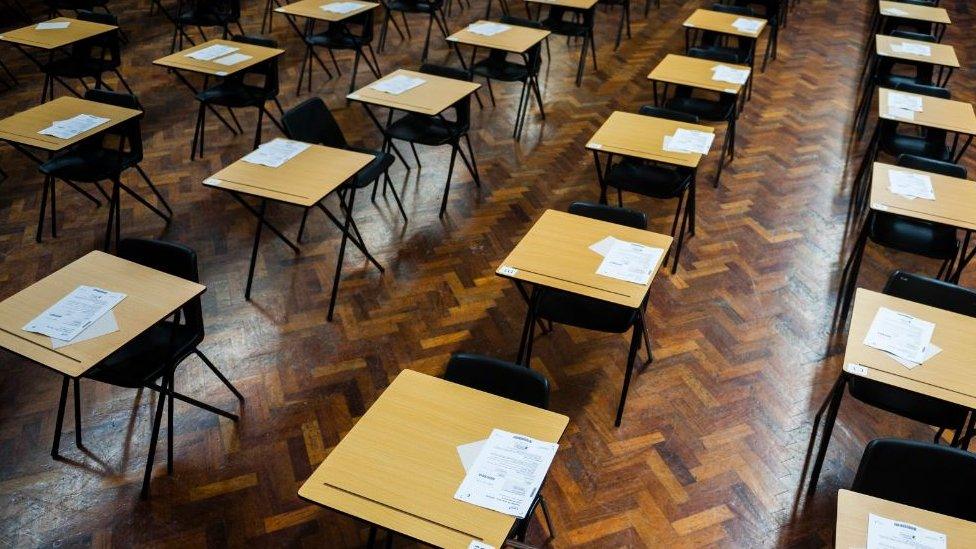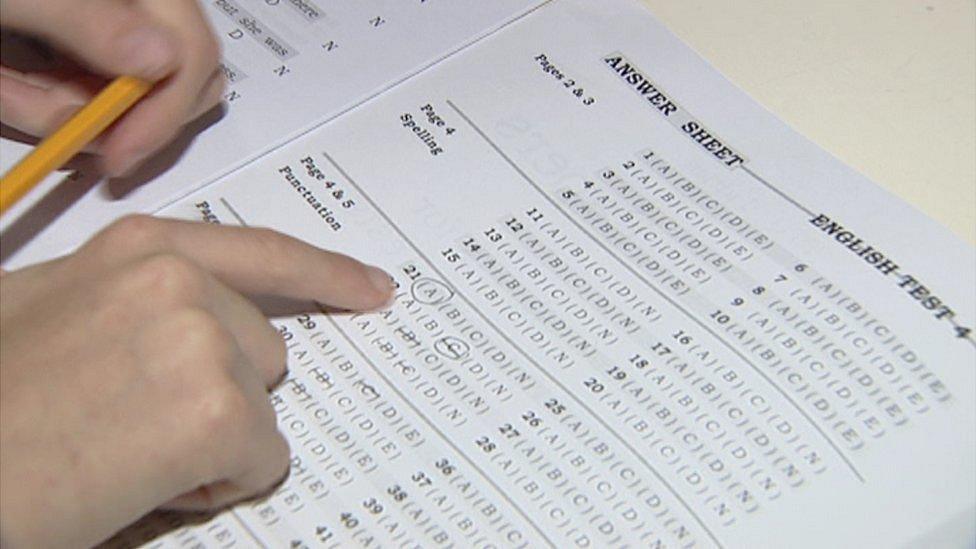Single AQE test 'likely to widen' rich-poor educational inequalities
- Published

The decision to hold a single AQE transfer test rather than three tests "is likely to widen educational inequalities between wealthy and poor".
That is according to academics from the Centre for Research in Educational Underachievement (CREU) at Stranmillis University College.
A single AQE transfer test is scheduled to be held on Saturday 27 February if public health conditions allow.
That follows the cancellation of three AQE tests due to take place in January.
Pupils normally take three AQE tests and their two best scores are used to apply for grammar schools.
Two transfer tests run by the separate PPTC organisation were also cancelled.
In an article on the CREU website Dr Noel Purdy, Dr Glenda Walsh and Dr Jonathan Harris said that they did not intend to "re-examine the rights and wrongs of academic selection".
'Lockdown learning gap'
However, they said that research had shown that "the single strongest predictor of a pupil's academic achievement is whether they gain entrance to a grammar school for post-primary education".
Most pupils - including many in Primary 7 who had entered the tests - are out of school and being taught remotely until at least mid-February.
"Preliminary studies from across the UK indicate that a 'lockdown learning gap' has appeared between the wealthy and the poor, as children are experiencing widely different educational outcomes due to access to technology, parental availability and competence, access to quiet space, and school resources," the CREU academics said.
They also said that the decision to hold a single test was "more likely than ever" to widen inequalities between wealthy and poor children.
The academics said that was for a number of reasons including that:
Remote learning had been least effective for children in low-income homes and children of key workers
Wealthy families could prepare children better for the test by paying for private tutoring, for instance
A single test could give an inaccurate reflection of a child's ability
The mental health of children had been negatively affected by the pandemic, more so in disadvantaged households
"Because of all of this, both postponing and resorting to a single test is now likely to widen educational inequalities for the current P7 cohort, with the children of parents most able to insulate them from the negative effects of the pandemic handed a significant advantage," they wrote.

AQE, however, have previously said that if no test was held academic performance in a test would be replaced by other more random criteria to admit pupils to grammar schools.
They said that would include "family ties, geographical proximity to a school or some form of lottery for places".
But the CREU academics said that cancelling the single test would save pupils the stress of preparing for it and "nullify the risk to public health that conducting the transfer test represents".
"However, to go ahead with a single test postponed to the (hopeful) end of an extended period of lockdown home-schooling, is certain to widen educational inequalities based on wealth for this P7 cohort in comparison with other years."
Some grammars have said they will not use the AQE test to admit pupils in 2021.
Related topics
- Published5 January 2021
